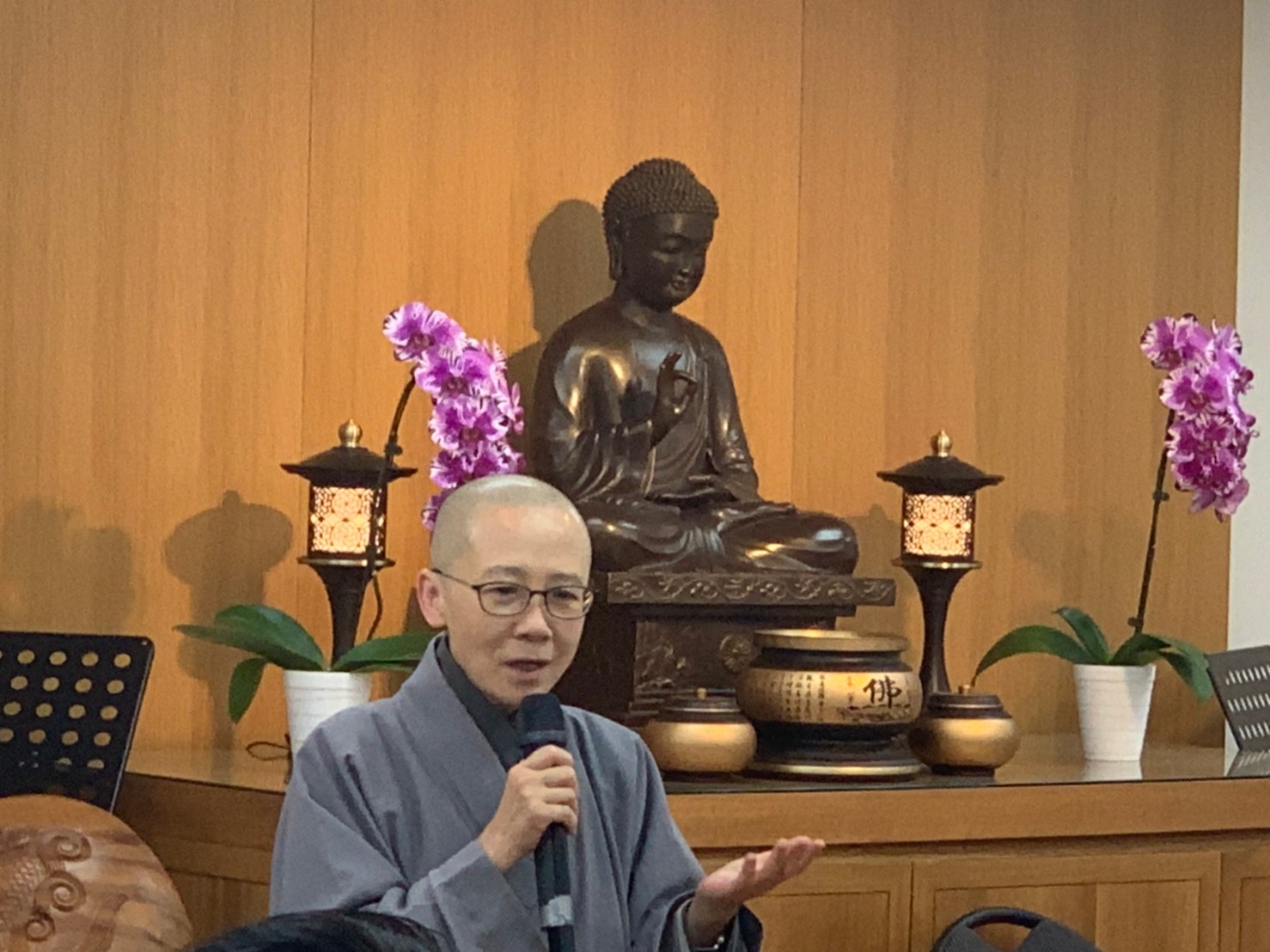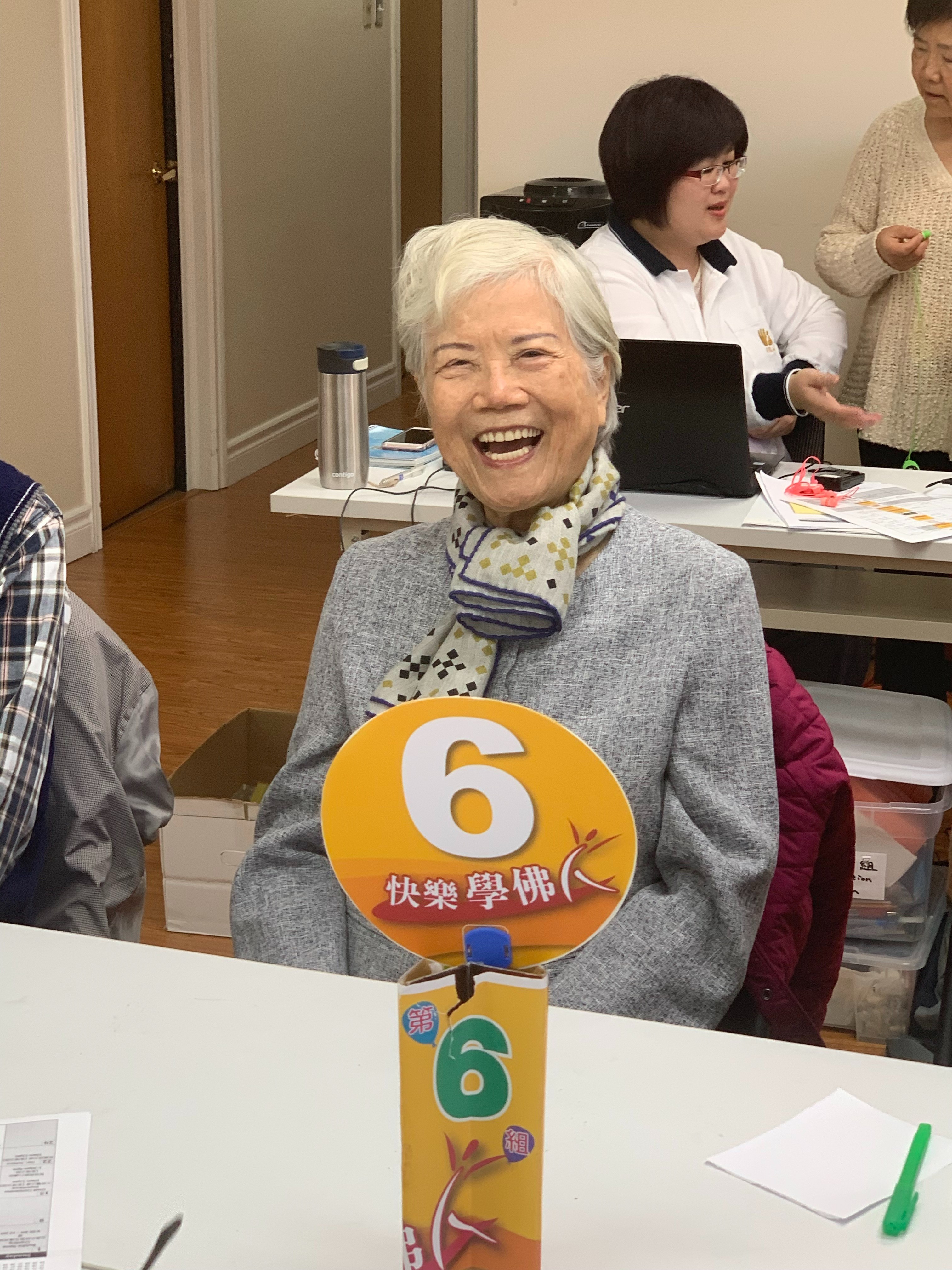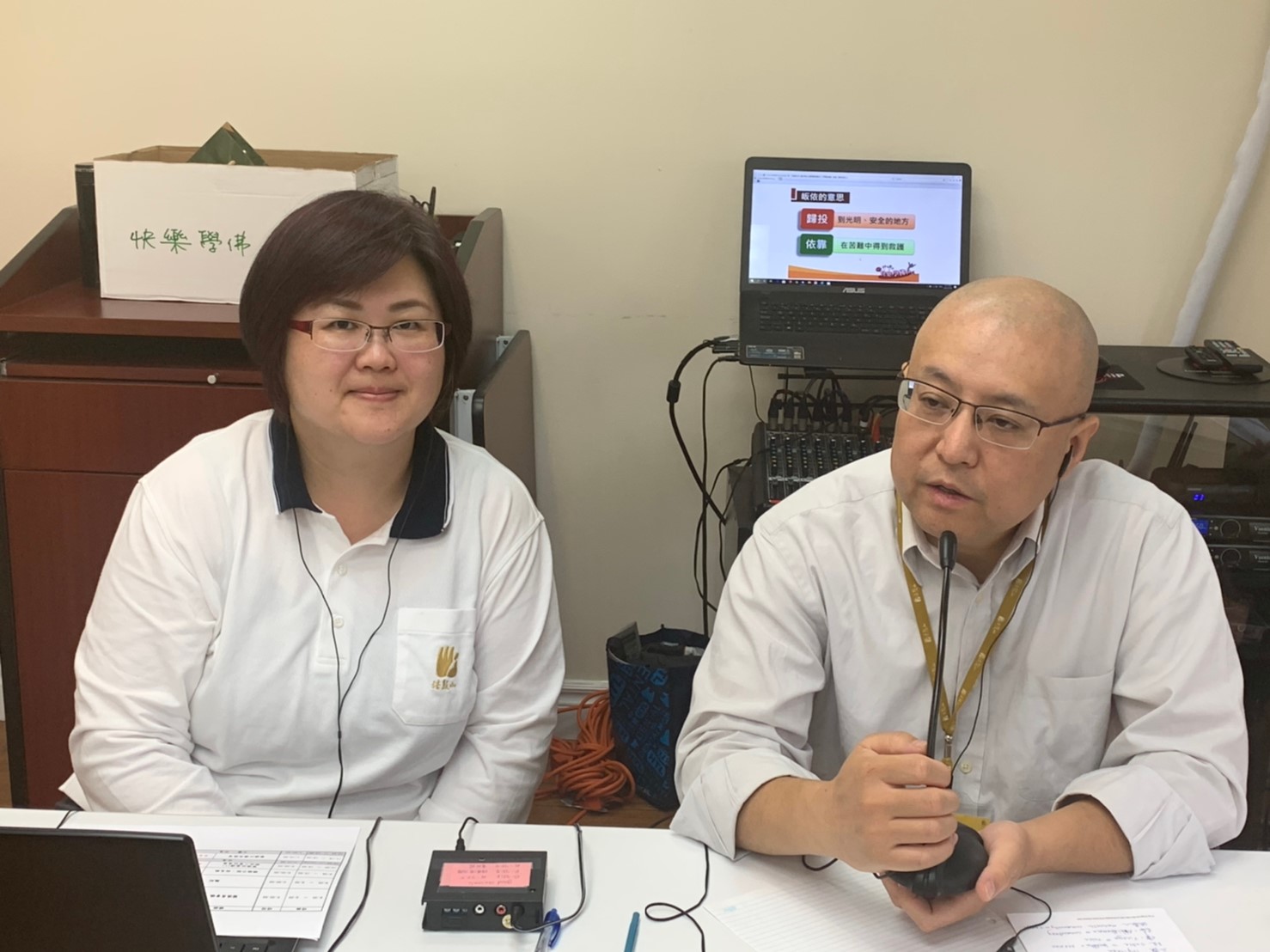Reflections on the Happy Buddhist classes

I have been a member of DDM for a few years and speak mostly English but the community has always been accommodating by providing translations. I haven’t been to classes taught by monastic teachers for quite some time but am certainly grateful to get a chance to go to this series of classes. Although the classes were in Mandarin, I feel that I learned fully what was taught in the classes.

I have a small notebook which records all my study notes of Buddhism since 2015 when I first started attending DDM classes. Some of the notes were similar to what was taught in the recent classes, such as the principle of dealing with matters - facing it, accepting it, dealing with it, and letting go of it. Although it was not the first time that I learned it, the teaching is always relevant to our life and it’s important to come to classes to review what I have learned in the past. So I think it’s still very valuable.
I have also learned something new, such as the four ways to cultivate blessings and that is acknowledging blessings, cherishing what you have and being content with it, sharing blessings with others, and actively planting seeds by benefitting and helping others. I think although I may be aware of this or judging from common sense, when it is taught directly and distinctively, I think it helps further our understanding.

My favourite take-away from the classes were the information and resources for further individual practice like online links and apps from DDM. I appreciate learning about the four virtues that are compassionate giving, using kind words, beneficial deeds for others, and cooperation and fellowship toward others I would like to establish a way of practicing them consistently, along with the other teachings that I have learned.

One of the best things about having classes is to have group discussions. One of the discussions is to reflect on ourselves: is this something I can have, is it something I need, is it something I am entitled to, and is it that I shouldn’t obtain. As we discussed how we can make use of these four guidelines in our daily life, most of us used examples involving material possessions. But one member said she practiced the four guidelines on her emotions. In other words, are these emotions being exercised at the cost beyond my capacity to handle? From this perspective, her experience helped me realize a lot of conflict and emotions are unnecessary or not as useful as we believe. I could not possibly understand this without the group discussion and sharing.

Although many of the teachings I have learned already, having classes like these helps me know that I am on the right path in my practice and gives me confidence that I am making progress over the years. I recalled when I first came to DDM for classes like these, I could hardly stay focused, puzzled by what was being taught. Now I see the changes and progress.

I’m very thankful for the opportunity to continue to learn by attending such classes. Now I am convinced more than ever that practice is a lifelong commitment, after missing out on classes over the years. It is really essential to always come back to resume our practice whenever we can, even if we become hesitant that we have been missing out to long. Late is better than never.